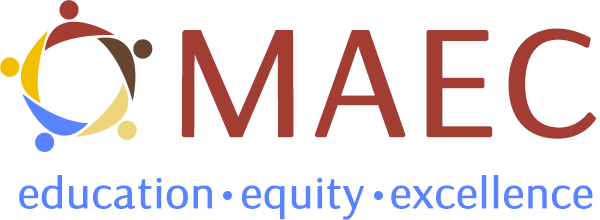Practitioner’s Perspective – Mental Wellness for Teachers and Students (Marianna Stepniak)

Content Specialist Marianna Stepniak describes MAEC’s work in developing mental wellness resources and underscores the value of incorporating social-emotional learning alongside academic learning.
Where did the idea for MAEC’s mental wellness resources come from?
We first started discussing our mental wellness resources in June 2020. That month, it felt like everything came to a crux: students and teachers were burnt out from adapting to new forms of learning, fear and anxiety around COVID-19 continued to rise, hate crimes against Asian American and Pacific Islander communities continued to increase, and the country erupted into national uprisings against the racialized harm and trauma against Black and Brown folks, especially at the hands of police brutality. It was a perfect storm of so many horrific things. [MAEC’s President] Susan posed the question: “What do teachers and students need right now?” Our staff responded to that question with many projects, including webinars on Black Lives Matter and the effects of COVID-19 on AAPI communities – and we began a conversation about how we could support teacher and student wellness. Our consultant Seth Shaffer, Psy.D and I ran with that question, and we developed a publication on equipping teachers with resources to take care of themselves, their students, and their communities. More recently, we expanded that self-care lens to a systemic perspective in our webinar on how to reimagine mental wellness in schools during and after COVID-19.
Why is it important that schools focus on mental wellness and social-emotional learning?
When we talk about what students learn in school, many people first think about core academic subjects, like writing or math or science. But so much of students’ education goes beyond academic learning or specific course knowledge. School is about learning those academic skills – but it’s also about learning how to get along with your classmates, how to problem-solve, how to listen well, and how to be kind. These are all social-emotional skills. To prepare our young people to be thoughtful citizens of this world and to make good trouble, they need to learn how to collaborate and be empathetic just as much as they need to learn how to read and write. We need to value social-emotional learning and wellbeing in school as much as we do academic learning and wellbeing.
Can you share with us your experiences working on MAEC’s mental wellness resources?
This project involved deep dives into understanding the impact of COVID-19 on schools in the United States. That impact extends beyond students and teachers to include administrators, families, community members, and just about every person in the country. Since we started on the Managing Mental Wellness publication in summer 2020, I’ve witnessed the mental wellness crisis emerge full-force. I feel this crisis viscerally within the work I do at MAEC and personally, especially watching my mom (a high school educator) navigate the ever-shifting tides of COVID at school.
The publication and webinar work together hand-in-hand to expand the conversation from the individual to the system. Whereas the publication asks: “What can you do to support yourself right now?” responding to times of crisis, the webinar asks: “How can we reform this system to meet your needs?” Self-care is not the only piece of the puzzle, and neither is systems reform. This sort of shift will take both individual and systems-level change.
The Center for Education Equity (CEE) at MAEC is inviting members of our advisory board, partners, staff, and other colleagues to share their views on current equity issues. Their opinions do not necessarily reflect CEE’s views or those of the Department of Education and we do not necessarily endorse any products or resources they promote.

